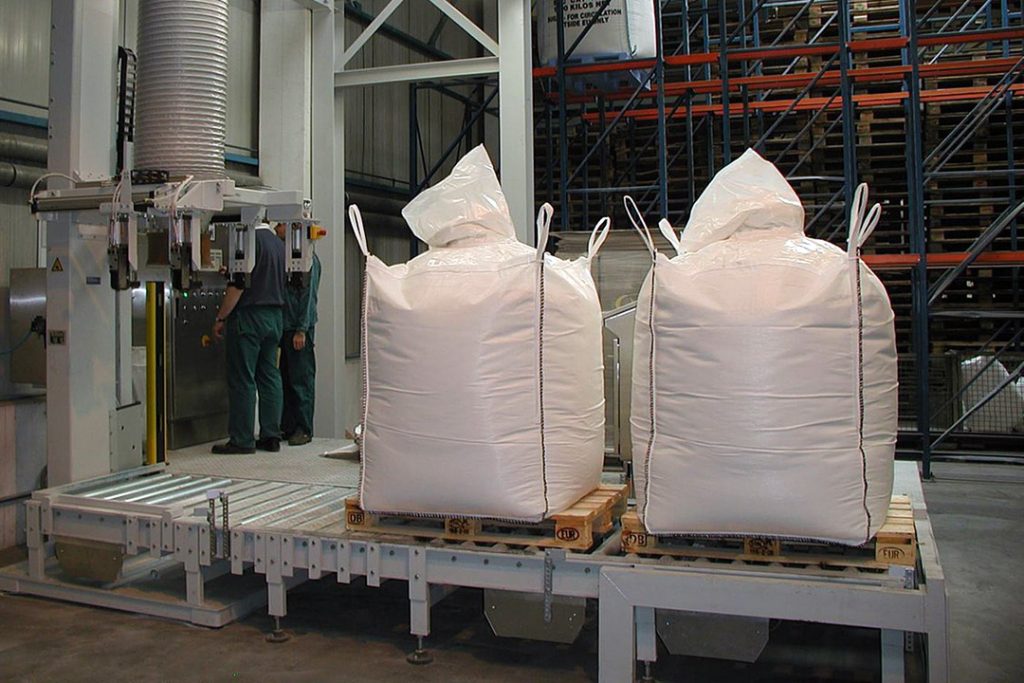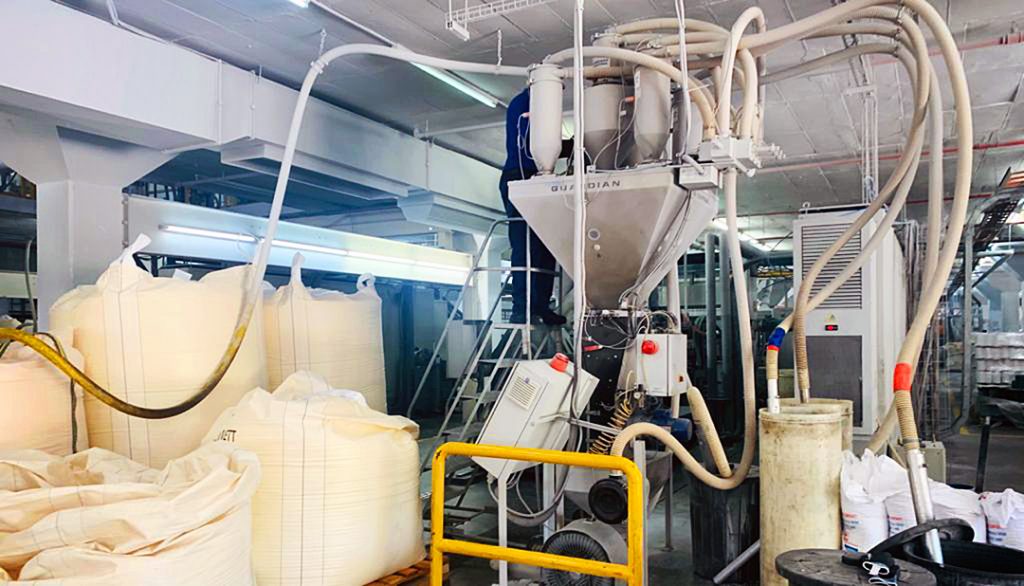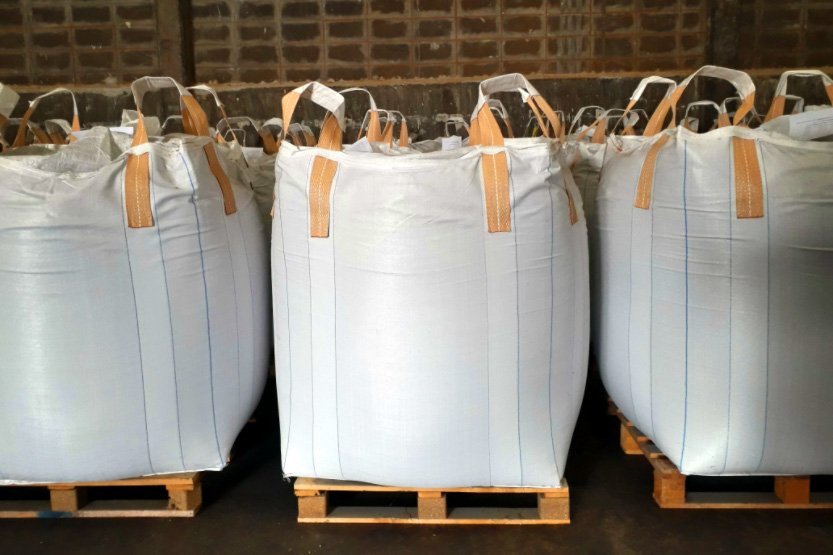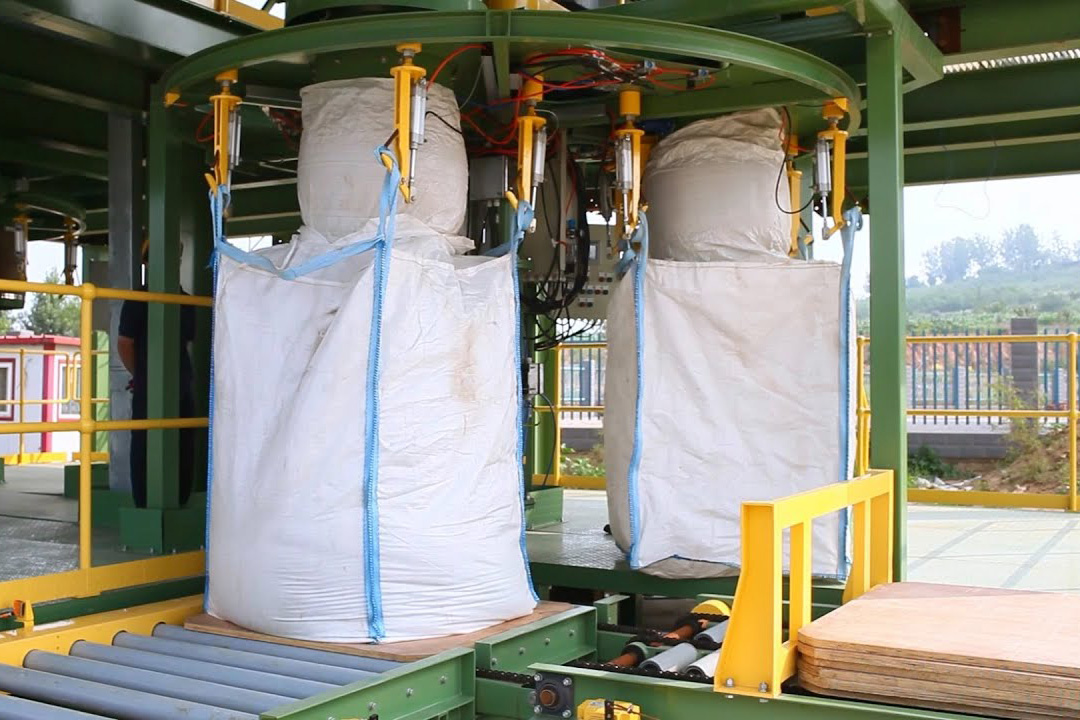Bulk bags are a versatile, economical and long-lasting solution for a variety of businesses in the field of packaging and bulk transportation. These big bags, also known as flexible intermediate bulk containers (FIBCs), may accommodate a variety of products and are frequently used to transport and store grains, chemicals, minerals and construction materials.
One specific type of bulk bag that is commonly used is the valve bag. These bags include a small aperture or valve on one end that allows for controlled and easy filling. They are intended to carry fine or powdered materials such as cement, flour, sugar and even pet food. They offer a practical and efficient method of packaging and transporting these goods.
Handling valve bags during the filling process can be difficult, especially when attaching them to filling equipment. To minimise leaks or spills, the bags must be tightly secured and the procedure must be optimised to ensure productivity and efficiency.
Custom Bulk Bags is a major manufacturer and supplier of bulk bags in South Africa. We produce up to 3.5 million bulk bags per year, all of which have a minimum safety factor rating of 5:1. Our products can safely hold between 500kg and two tonnes of material per bag, depending on your specifications.
Filling valve bags entails carefully inserting the product into the bag through the valve opening. This can be accomplished with a variety of valve bag filling equipment, each with its own set of advantages and disadvantages.

Five types of valve bag filling equipment
There are five main types of valve bag filling equipment commonly used in the industry:
1) Auger filling equipment – This equipment uses an auger screw to dispense the product into the valve bag. This method is particularly suitable for granular or powdered products and offers precise and controlled filling. Auger filling equipment is often used in industries such as agriculture, food processing and pharmaceuticals.
2) Impeller filling equipment – To fill the valve bag, impeller filling equipment uses a rotor with blades that rotate at high speeds, providing centrifugal force. This equipment is ideal for free-flowing, lightweight goods like seeds, grains and powders. Impeller filling equipment is used in areas such as agriculture and construction because it provides fast and effective filling.
3) Air filling equipment – Compressed air is used to blow the product into the valve bag. This approach is widely used for fine and dusty materials like cement, where accurate filling and dust containment are required. Air filling equipment reduces product loss while maintaining a clean and dust-free working environment.
4) Gravity filling equipment – Here, the natural force of gravity is used to fill the valve bag. A funnel or chute directs the product downward into the bag. This easy-to-use approach is appropriate for a wide range of items, including grains, seeds and minerals. Gravity filling equipment is frequently used due to its ease of use and low maintenance needs.
5) Vacuum filling equipment – Vacuum filling equipment extracts air from inside the valve bag, creating a vacuum that pulls the product into the bag. This method is commonly used for fragile or delicate products that need to be handled gently. This equipment ensures precise filling and minimal damage to the product.

Manual vs automated filling equipment
In terms of automation, valve bag filling equipment can range from manual to semi-automated to fully automated. With manual filling, employees place the bags into the filling machinery. This is a time-consuming but cheaper option.
With semi-automated systems, machines are used to aid with bag handling and filling. This saves time and is more accurate but can add to the costs of operations. Lastly, fully automated systems can handle the entire operation, from bag placement to filling and bag removal, with little to no human intervention. This is the most expensive solution but will save a lot of time and massively improve output.
Each type of valve bag filling equipment and automation level has its own set of pros and cons. Manufacturers and industries can select the best equipment based on their specific requirements, budget and production volume.

Partnering with a trusted bulk bag supplier
Custom Bulk Bags is a reputable and trusted bulk bag manufacturer and supplier in South Africa. With years of business experience, we have established ourselves as a leading supplier of high-quality bulk bags. We take pride in our knowledge and dedication to customer service.
Our staff remains committed to aiding customers throughout the ordering and specification process, guaranteeing that the ideal bulk bags are delivered on time. They are familiar with the special needs of diverse sectors and can give tailored advice and solutions to fulfil those needs.
Valve bag filling equipment plays an important role in the efficient and reliable packaging of various powdered and fine-grain products. By partnering with a trusted bulk bag supplier, companies can ensure they are using the best equipment and materials for their packaging needs. For more information about our bulk bags or to get advice on the ideal design specifications, please contact us today.
___
Custom Bulk Bags is a leading South African manufacturer of woven polypropylene bags for various industries, such as mining, chemicals and food. We are able to produce over 3.5-million bulk bags per year, keeping our customers in stock at all times. Our bags adhere to the highest levels of quality as a result of our stringent in-house testing and quality control programmes.
Custom Bulk Bags holds ISO 9001 certification and we currently have a number of UN-certified designs. We are a Level 2 B-BBEE manufacturer and supplier and fall under the ownership structure of Deneb Investments Limited. For more information on our products, contact sales@custombulkbags.co.za. Follow us on Facebook, LinkedIn and Instagram for our latest news and industry insights.
